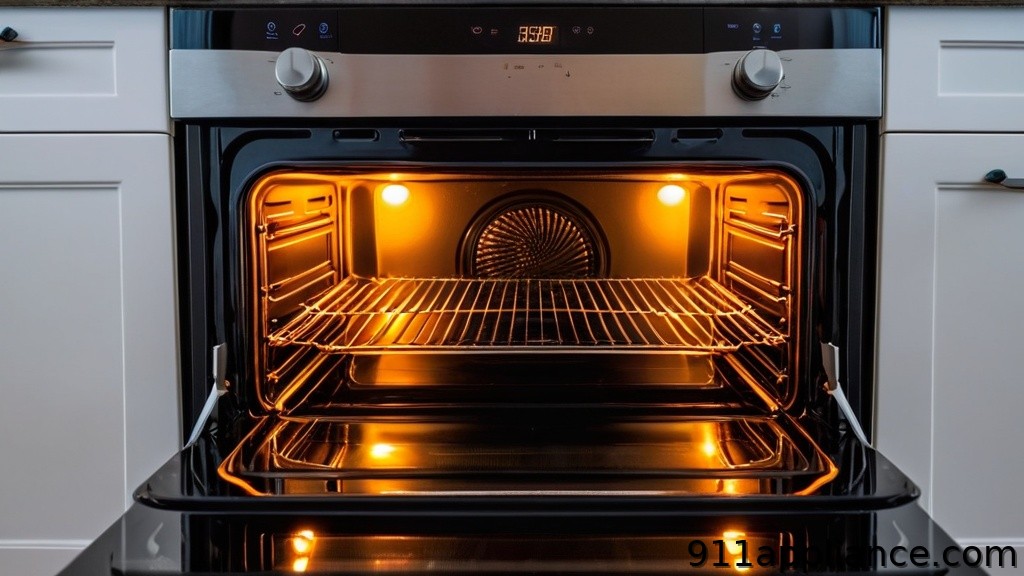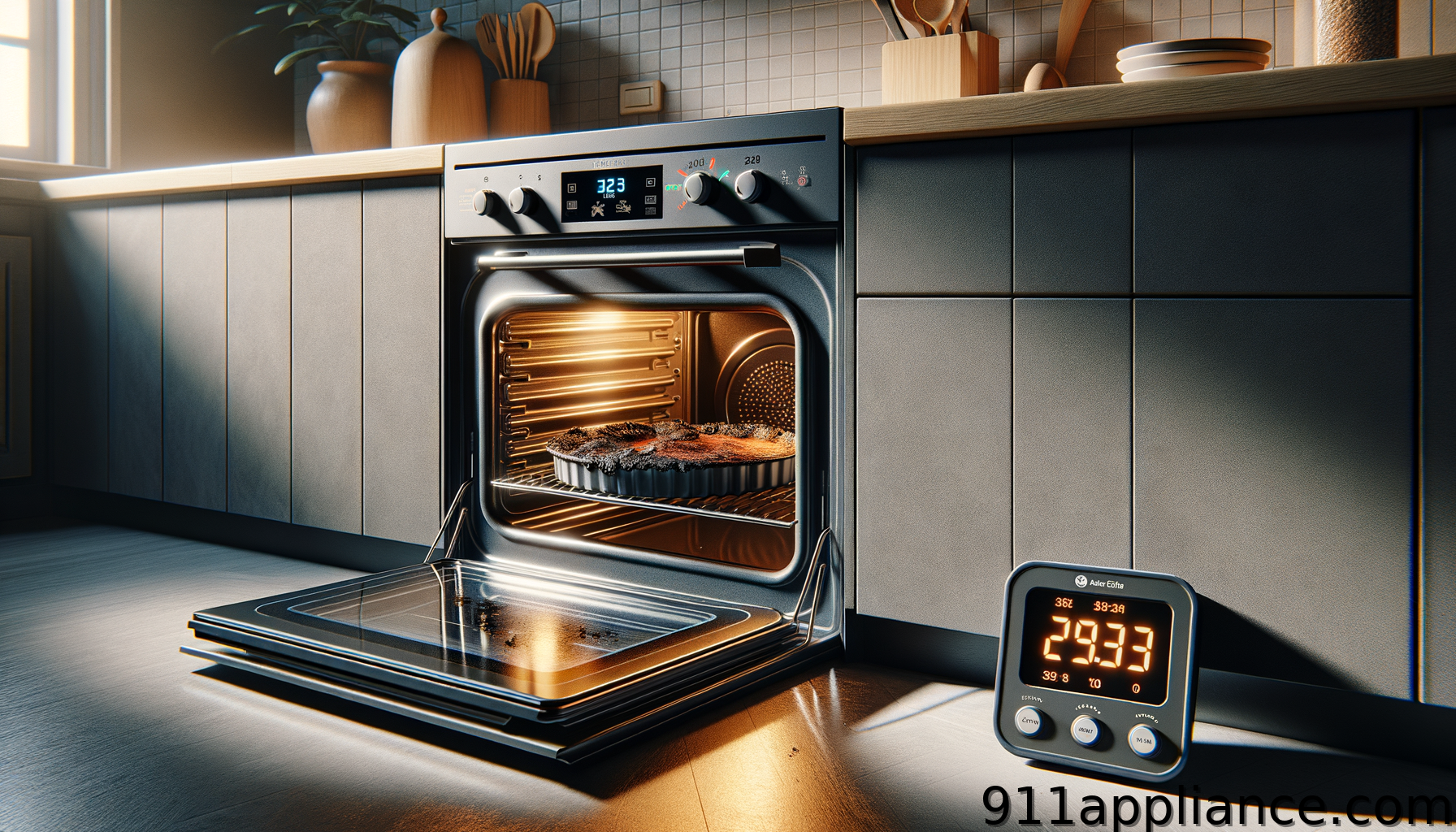A properly functioning refrigerator is essential for keeping food fresh and preventing spoilage. It is a vital appliance in any household, and when it starts to have cooling issues, it can be a cause for concern. This blog post aims to provide a comprehensive guide on understanding, diagnosing, and troubleshooting refrigerator cooling issues. Whether you are experiencing a refrigerator that is not cooling enough or want to prevent future cooling problems, this article will provide you with the necessary information.
Table of Contents
- Key Takeaways
- Understanding the Cooling System of a Refrigerator
- Common Causes of Refrigerator Not Cooling Enough
- Signs of a Refrigerator Not Cooling Enough
- Steps to Diagnose a Refrigerator Not Cooling Enough
- How to Troubleshoot a Refrigerator Not Cooling Enough
- Repairing a Refrigerator Not Cooling Enough
- Replacing Parts in a Refrigerator Not Cooling Enough
- Preventing Future Refrigerator Cooling Issues
- When to Call a Professional for Refrigerator Repair
- Could a Refrigerator Not Defrosting Also Cause it to Not Cool Enough?
- FAQs
- What are the common causes of a refrigerator not cooling enough?
- How can I diagnose the problem with my refrigerator?
- Can I repair my refrigerator myself?
- How much does it cost to repair a refrigerator?
- When should I replace my refrigerator instead of repairing it?
Key Takeaways
- Refrigerator cooling issues can be caused by a variety of factors, including problems with the cooling system, faulty parts, and poor maintenance.
- Understanding the cooling system of a refrigerator is important for diagnosing and troubleshooting cooling issues.
- Common causes of a refrigerator not cooling enough include dirty condenser coils, a malfunctioning thermostat, and a faulty compressor.
- Signs of a refrigerator not cooling enough include warm temperatures inside the fridge, frost buildup, and unusual noises.
- Steps to diagnose a refrigerator not cooling enough include checking the thermostat, inspecting the condenser coils, and testing the compressor.
Understanding the Cooling System of a Refrigerator
To understand refrigerator cooling issues, it is important to have a basic understanding of how the cooling system works. The main components of a refrigerator’s cooling system include the compressor, condenser, evaporator, and refrigerant. The compressor is responsible for compressing the refrigerant gas, which increases its temperature and pressure. The hot refrigerant then flows into the condenser coils, where it releases heat and becomes a high-pressure liquid. The liquid refrigerant then passes through the expansion valve, which reduces its pressure and temperature. As it enters the evaporator coils, it absorbs heat from the refrigerator’s interior, causing the temperature to drop. The cooled refrigerant then returns to the compressor to start the cycle again.
Common Causes of Refrigerator Not Cooling Enough
There are several common reasons why a refrigerator may not be cooling properly. These include a faulty compressor, dirty condenser coils, a malfunctioning thermostat, a blocked air vent, or a refrigerant leak. A faulty compressor can prevent the refrigerant from circulating properly and result in inadequate cooling. Dirty condenser coils can restrict airflow and cause the refrigerator to work harder to cool down. A malfunctioning thermostat may not accurately sense the temperature inside the refrigerator and fail to activate the cooling system when needed. A blocked air vent can prevent cold air from circulating throughout the refrigerator, leading to uneven cooling. Finally, a refrigerant leak can cause a loss of cooling capacity as the refrigerant levels decrease.
Signs of a Refrigerator Not Cooling Enough
There are several signs that indicate a refrigerator is not cooling properly. These include food spoiling quickly, ice melting or not forming properly, condensation or frost buildup inside the refrigerator, and unusual noises coming from the appliance. When food spoils quickly, it is a clear indication that the refrigerator is not maintaining the proper temperature. Ice that melts or does not form properly can be a sign of inadequate cooling. Condensation or frost buildup inside the refrigerator can indicate that the cooling system is not functioning optimally. Unusual noises, such as grinding or buzzing sounds, can be a result of a malfunctioning compressor or other components.
Steps to Diagnose a Refrigerator Not Cooling Enough
To diagnose a refrigerator that is not cooling enough, there are several steps you can take. First, check the temperature settings on the thermostat and ensure they are set correctly. Next, inspect the condenser coils for any dirt or debris and clean them if necessary. You should also check for any blockages in the air vents and clear them if needed. If these steps do not resolve the issue, you may need to use a multimeter to test the continuity of the compressor and thermostat. Additionally, you can use a refrigerant leak detector to check for any leaks in the system.
How to Troubleshoot a Refrigerator Not Cooling Enough

When troubleshooting a refrigerator that is not cooling enough, it is important to identify the root cause of the issue. Start by checking the power supply and ensuring that the refrigerator is properly plugged in. Next, inspect the door seals for any damage or gaps that may be allowing warm air to enter the refrigerator. If the door seals are faulty, they may need to be replaced. Additionally, check for any obstructions in the airflow around the refrigerator, such as items placed too close to the appliance. Finally, if none of these steps resolve the issue, it may be necessary to call a professional for further diagnosis and repair.
Repairing a Refrigerator Not Cooling Enough
If you are comfortable with DIY repairs, there are several steps you can take to repair a refrigerator that is not cooling enough. First, you may need to replace a faulty compressor or thermostat. This will require disconnecting the power supply, removing the old component, and installing the new one according to the manufacturer’s instructions. Additionally, you may need to clean or replace the condenser coils if they are dirty or damaged. It is important to follow proper safety precautions when working with electrical components and ensure that the power supply is disconnected before starting any repairs.
Replacing Parts in a Refrigerator Not Cooling Enough
In some cases, certain parts of the refrigerator may need to be replaced to resolve cooling issues. These parts can include the compressor, thermostat, condenser coils, evaporator fan motor, or door seals. To identify which parts need to be replaced, it is important to diagnose the root cause of the cooling problem. Once you have identified the faulty component, you can order a replacement part from the manufacturer or a reputable appliance parts supplier. When replacing parts, it is crucial to follow the manufacturer’s instructions and ensure that the power supply is disconnected.
Preventing Future Refrigerator Cooling Issues
To prevent future cooling issues in your refrigerator, there are several tips you can follow. First, regularly clean the condenser coils to ensure proper airflow and prevent dust buildup. You should also check and replace the door seals if they become worn or damaged. Additionally, avoid overloading the refrigerator with food as this can restrict airflow and strain the cooling system. It is also important to keep the refrigerator away from heat sources such as direct sunlight or other appliances that generate heat. Finally, schedule regular maintenance checks with a professional to ensure that the cooling system is functioning optimally.
When to Call a Professional for Refrigerator Repair
While some refrigerator cooling issues can be resolved through DIY repairs, there are instances when it is necessary to call a professional for repair. If you are unsure about diagnosing or repairing the issue yourself, it is best to seek the help of a trained technician. Additionally, if the refrigerator is still under warranty, it is advisable to contact the manufacturer or an authorized service center for repairs. Hiring a professional for refrigerator repair has several benefits, including their expertise and access to specialized tools and equipment. They can accurately diagnose the issue and provide a long-lasting solution.
A properly functioning refrigerator is crucial for keeping food fresh and preventing spoilage. Understanding, diagnosing, and troubleshooting refrigerator cooling issues can help ensure that your appliance continues to work efficiently. By following the steps outlined in this article, you can identify the root cause of the cooling problem and take appropriate measures to resolve it. Regular maintenance and proper care of your refrigerator’s cooling system can also help prevent future issues. Remember, if you are unsure about diagnosing or repairing the issue yourself, it is best to seek the help of a professional technician.
If you’re dealing with a refrigerator that’s not cooling enough, it can be frustrating and inconvenient. However, diagnosing and repairing the issue doesn’t have to be a hassle. At 911 Appliance Repair, we have a helpful article that provides step-by-step guidance on troubleshooting and fixing this common problem. Check out our article on “Refrigerator Not Cooling Enough: Diagnosing and Repairing” to learn more about the possible causes and solutions. Don’t let a malfunctioning refrigerator disrupt your daily routine – let us help you get it back to optimal performance. Read more
Could a Refrigerator Not Defrosting Also Cause it to Not Cool Enough?
When a refrigerator is not defrosting properly, it can lead to insufficient cooling. It is important to consider diagnosing refrigerator defrosting solutions to address this issue. A malfunctioning defrost system can prevent the fridge from maintaining the proper temperature, resulting in spoiled food and inefficiency.
FAQs
What are the common causes of a refrigerator not cooling enough?
There are several common causes of a refrigerator not cooling enough, including a dirty condenser coil, a faulty thermostat, a malfunctioning compressor, a blocked air vent, or a refrigerant leak.
How can I diagnose the problem with my refrigerator?
To diagnose the problem with your refrigerator, you can check the temperature settings, inspect the condenser coil, listen for unusual noises, check the door seals, and look for any signs of leaks or blockages.
Can I repair my refrigerator myself?
It is possible to repair your refrigerator yourself, but it is recommended to hire a professional technician to ensure proper diagnosis and repair. Attempting to repair a refrigerator without proper knowledge and tools can be dangerous and may cause further damage.
How much does it cost to repair a refrigerator?
The cost of repairing a refrigerator can vary depending on the extent of the damage and the parts needed for repair. On average, the cost can range from $200 to $500.
When should I replace my refrigerator instead of repairing it?
If your refrigerator is more than 10 years old and requires frequent repairs, it may be more cost-effective to replace it instead of repairing it. Additionally, if the cost of repair exceeds 50% of the cost of a new refrigerator, it may be more practical to replace it.



